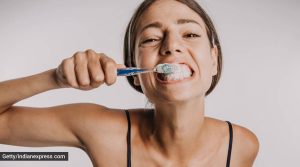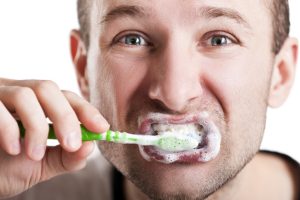Should you brush your teeth before or after breakfast?

Discover the Best Time to Brush Your Teeth: Before or After Breakfast?
Have you ever wondered whether it’s more effective to brush your teeth before or after breakfast? It’s a common dilemma, especially when you want to avoid walking around with breakfast remnants stuck in your teeth. Additionally, the clash of flavors between minty toothpaste and your morning coffee can be quite off-putting. So, let’s delve into the question of when exactly you should brush your teeth.
The Importance of Morning Brushing
Dentists have long advised us to brush our teeth twice a day: once in the morning and once before bed. But did you know that morning brushing holds particular significance? During the night, while you were peacefully sleeping, bacteria have been silently building up in your mouth. By brushing your teeth in the morning, you effectively remove this overnight accumulation and kick-start your day with a fresh, minty breath. However, the exact timing of when to brush remains an open question. So, let’s address the age-old debate of pre- or post-breakfast brushing.

The Case for Brushing Before Breakfast
Contrary to what you might expect, brushing your teeth before breakfast is actually more beneficial. Surprising, isn’t it? When you brush immediately after consuming food, especially something sweet or sour, you risk damaging your tooth enamel. This, in turn, increases the likelihood of developing cavities. Therefore, it’s best to brush your teeth before breakfast to protect your pearly whites. However, if you prefer not to brush right before your morning meal, but still desire fresh breath, there’s an alternative solution. Wait at least thirty minutes after eating before you pick up your toothbrush. This delay allows your saliva to neutralize the acids in your mouth, reducing the risk of enamel erosion. It’s a safer approach that still keeps your teeth and breath in check. And for those busy mornings when time is of the essence, you can use mouthwash as a quick and convenient alternative.

Additional Tips for Optimal Oral Health:
1. Don’t forget to floss: Brushing alone is not enough to maintain optimal oral hygiene. Remember to floss at least once a day to remove plaque and food particles from between your teeth.
2. Choose the right toothbrush: Opt for a toothbrush with soft bristles to avoid damaging your gums and enamel. Replace your toothbrush every three to four months or sooner if the bristles become frayed.
3. Practice proper brushing technique: Use gentle, circular motions to clean your teeth and gums thoroughly. Don’t forget to brush your tongue to remove bacteria and freshen your breath.
4. Limit acidic and sugary foods: Minimize your consumption of foods and beverages high in acidity and sugar, as they can erode tooth enamel and contribute to tooth decay. If you do indulge, rinse your mouth with water afterward.

5. Visit your dentist regularly: Schedule regular check-ups with your dentist to detect any dental issues early on and receive professional cleanings to maintain optimal oral health.
By incorporating these tips into your oral hygiene routine and understanding the best time to brush your teeth, you’ll be well on your way to a healthy and radiant smile. Remember, a little extra care goes a long way in preserving your dental well-being.
